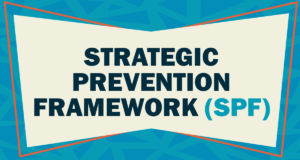Reason versus emotion
According to experts, the human brain is not a single working organism. There are different parts to it, with each part controlling different parts of the body, thought, and emotions.
While there are many factors to anxiety, the emotional brain is often seen as responsible for a great deal of the response to stress. That’s why in many ways combatting anxiety involves learning to control the emotional brain.
Human beings have a higher thought plane than other animals thanks to the development of the neocortex – the area of the brain responsible for problem solving, conscious thought, and language. But before this area of the brain developed, human beings were like every other type of animal: acting mostly on instinct instead of logic.
But before the neocortex, there was another part of your brain – the mammalian part of your brain. This part of your brain acted on emotions, feelings, and instinct, which is why we call this the “emotional brain.” This is the part of your brain responsible for attraction to beauty, ducking when you are about to walk into a branch, and preparing your body to deal with fears and dangers.
The Conflict Between the Two Brains
Your neocortex is extremely powerful. That’s why human beings no longer act strictly on instinct. Humans are able to decide what they want to do in any given situation, weighing the pros and cons faster than a computer and making countless decisions and calculations to decide how to act. Often they act against their own instinct, and use logic to overcome what their instinct may be telling them.
That’s why humans can learn to speak in public, for example. There’s little evolutionary reason to speak in front of a large group, and it’s not uncommon for everyone to experience some nervousness before they make a presentation. But there are public speakers today that were able to overcome that nervousness, and they overcame it using the power of their own mind. They decided that it was in their best interests to make the presentation, no matter what their instinct said, and now they’re profiting from that decision.
Our thoughts and decisions can control a lot of the way we feel. But it can’t always control all of it. There are times when the emotional brain becomes too powerful. That’s what causes things like road rage, violence, and, of course, anxiety.
How the Emotional Brain is Winning
When you suffer from anxiety, it’s essentially your emotional brain winning the fight over your rational brain. You know that you shouldn’t have these fears, or these physical symptoms. But your emotional brain is still managing to cause these symptoms to occur. There are even those that experience anxiety symptoms even when they have no anxious thoughts – this is an example of the emotional brain taking control.
The exact reason this occurs is not widely known. But it likely has to do with inadequate coping abilities of the neocortex to talk down the emotional brain and keep that feeling in its place. Coping is a skill that your brain learns in order to experience less anxiety and stress from the world around it, and when that skill is lacking for any reason, anxiety becomes more powerful and affects people even when there is no reason for that anxiety to occur. When that happens, no amount of thoughts can stop it.
Neocortex – Thought (including planning, language, logic & will, awareness)
Limbic System – Emotion (feelings, relationship/nurturing, images and dreams, play)
Reptilian Brain – Instinct (survival, breathing/swallowing/heartbeat, startle response)
That’s why it’s so important to re-learn coping abilities that will help you keep your emotional brain in its place.
Mandy X
References:
https://www.calmclinic.com/anxiety/emotional-brain
https://www.sustainablesonoma.org/keyconcepts/threebrains.html
Photo by _DJ_ 





